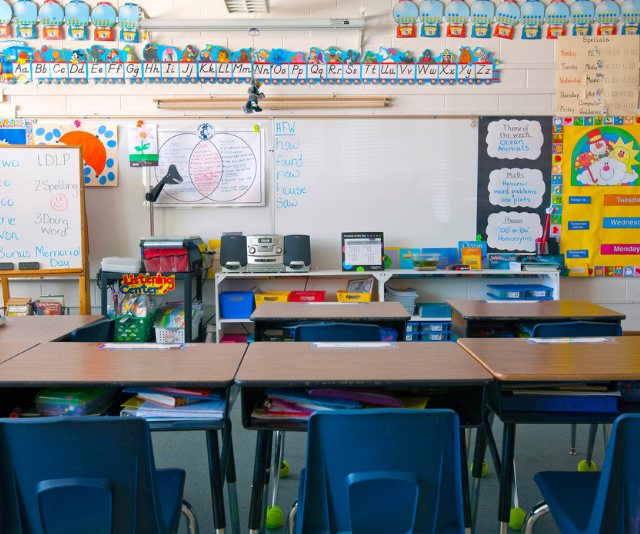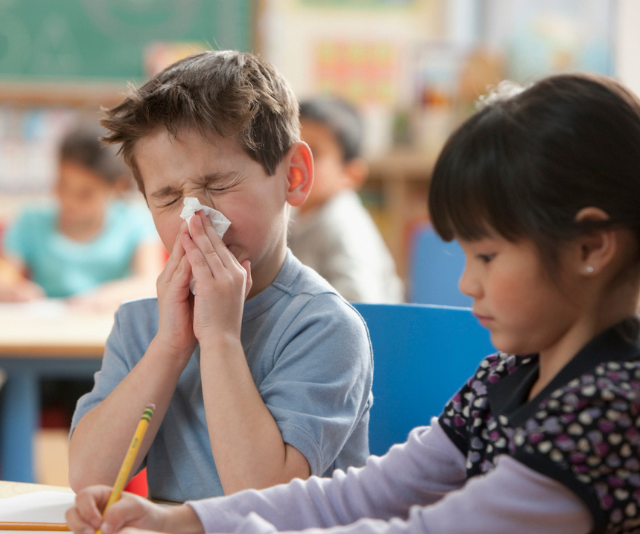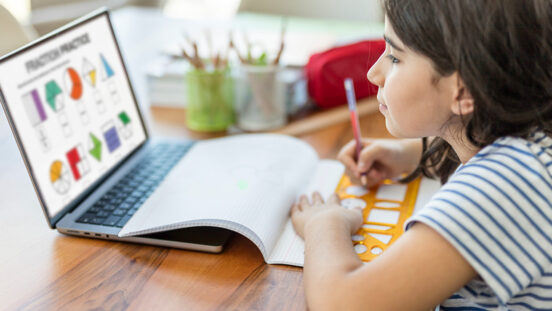Australian Schools and Coronavirus: Should I keep my child home from school due to COVID-19?
Everything parents need to know in the case of a pandemic school shutdown.
“When will schools be closed?” It’s the question that’s top of mind for many Australian parents right now. As the coronavirus pandemic worsens and numbers across the county climb, the government has made the call that all non-essential gatherings of more than 500 people across Australia should be cancelled as of Monday, March 16.
However, Prime Minister Scott Morrison said the advice did not apply to attendance at work, childcare, schools, university lectures, public transport, airports “or things of that nature”.
The government is now under pressure to follow the lead of 30 countries with school closures, including France, Spain and America.
Federal Education Minister Dan Tehan told the Today Show there are two main reasons why Australian schools have not closed.
“If we shut them now children in many cases would need to be looked after by grandparents or the elderly and that could pose a risk to them,” Dan Tehan told hosts Karl Stefanovic and Allison Langdon.
“And also we need our workforce at the moment. We need our nurses and our allied health workers, our doctors working and we need our kids at school. There are three million kids at school. There might come a time when medical experts tell us it’s time to close our schools but this time is not now. The Governments position has been clear, let’s listen to the best medical advice.”

All non-essential gatherings of more than 100 people across Australia should be cancelled but this advice does not apply to our schools.
The interview with the Federal Education Minister was posted to the Today Show Facebook page where it was inundated with comments from parents who could see both sides of the argument for whether schools should remain open or close, with some also deciding to make their own choice.
“Ok so all I’m hearing is keep the kids at school so health staff can still go to work at the hospitals. So it’s not because it’s the safest thing it’s only so medical staff wont stay home and not go to work at the hospitals,” wrote one person.
“I can not understand how you can cancel events with more than 500 people but allow schools which are a mass gathering of more than 500 people.” commented another.
“Please close the schools for kids safety,” pleaded another
“I understand how complex this situation is, but has anyone actually considered the educators and school staff? They themselves maybe at the high risk group and still need to attend to essentially be child sitters. Who will protect them?” wrote another.
“As a family, we have made the decision to keep our children home. My work has told us to work from home, so can the kids… our health and safety comes first,” commented one parent.
WATCH: The new coronavirus etiquette. Continues after video …
Should you still send your child to day care or school?
Offical word at this stage is that schools, daycares and universities are remaining open however, Australia’s Health Minister, Greg Hunt says the government was keeping all options on the table and would be guided by medical advice, explaining governments did not want to “move too early” because of the risk of children being at home with their grandparents and “taking parents out of the workforce who might be in the health and medical sector, [and] disrupting supply chains”.
- Any student entering Australia will need to spend a fortnight in self-isolation before returning to school.
- Any student who has been in close contact with a confirmed case of coronavirus in the last 14 days (they must isolate themselves for 14 days after the date of last contact with the confirmed case).
How can parents best protect their family?
There is currently no vaccine to prevent the coronavirus COVID-19. The best protection is to avoid being exposed to this virus.
You can keep your family healthy and help prevent illness by:
- Washing your hands frequently with soap and water for at least 30 seconds, especially before eating or touching your face. If soap and water are not available, use an alcohol-based hand sanitizer.
- Keep your kids away from others who are sick or keep them home if they are ill.
- If you are sick, avoiding contact with others and staying more than 1.5 metres away from people
- Try to stop children from touching their mouth, eyes and nose.
- Teach children to cough and sneeze into their arm or elbow, not their hands.
- When using a tissue, throw it away immediately after use and wash hands.
- Clean and disinfect household objects and surfaces in your home.
If you have a confirmed case, you need to self-quarantine to prevent it spreading to other people.
What does isolate at home mean?
People who need to isolate must stay at home and not attend public places, including work, school, childcare or public areas of university, higher education and vocational education campuses. Only people they usually live with should stay in the home. Do not see visitors. Where possible, ask others such as friends or family, who are not required to be isolated, to get food or other necessities.
If the person in isolation must leave the home or residence, such as to seek medical care, they are instructed to wear a surgical mask if they have one.
More information
While coronavirus is of concern, it is important to remember that most people displaying symptoms such as fever, cough, sore throat or tiredness are likely suffering with a cold or other respiratory illness – not coronavirus.
For the latest advice, information and resources, go to www.health.gov.au
Call the National Coronavirus Health Information Line on 1800 020 080. It operates 24 hours a day, seven days a week. If you require translating or interpreting services, call 131 450.
The phone number of your state or territory public health agency is available at www.health.gov.au/state-territory-contacts
If you have concerns about your health, speak to your doctor.
Everything you need to know about the Coronavirus and how to stay sane during self isolation
- How the PM’s new coronavirus rules will impact your everyday life
- All of the celebrities who have been affected by coronavirus
- How Australia’s upgraded travel ban impacts you, your family and your friends amid the COVID-19 pandemic
- What does the coronavirus mean for your favourite TV shows?
- Uplifting movies and shows to stream in these dark, self-isolating times
- How the royal family has been affected by the coronavirus
- So long, daggy PJs! Chic and and comfy loungewear to wear whilst self-isolating
- Free at-home workouts you can do while in self-isolation
- Coronavirus and pregnancy: New advice for pregnant women to take extra precautions
- Coronavirus and ibuprofen: What parents need to know to keep kids safe
- Prime Minister, Scott Morrison says schools will remain open amid COVID-19
- Coronavirus and swim schools: Are swimming lessons still safe?
- Coronavirus and pregnancy: Hospitals crackdown allowing one support person in maternity ward
- Disney+ announces early release of Frozen 2 because not all heroes wear capes
- Fun activities to do with the kids while isolating at home
- “They were shocked!” Sonia Kruger reveals how the Big Brother Australia cast were told about coronavirus
- Coronavirus, babies and children: What parents need to know
- Australian Schools and Coronavirus: Should I keep my child home from school due to COVID-19?




